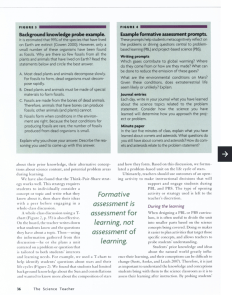The value of this research is set forth in the formative assessment aspect of it and how it can be used to support PBL and PBS to take full advantage of student success. It talks about how “formative assessment is any pedagogical strategy used to elect student understanding at any point during instruction” (Buck, 34). They found that formative assessments prove to be useful in ensuring students’ ideas are being identified and worked into the overall goal setting of the teacher’s plan to ensure students are engaged and ready for discussion.
Additionally, a main point is that for “formative assessment to be effective, the teacher must take action or make instructional decisions that support student’s needs at that time.” (Buck, 39). This relationship between teacher and student and understanding what they need help with. The assessment gives the best ideas as to why a student may feel that without this type of approach that they feel unwanted or left out of a story when it happens due to being pulled off perhaps for additional work due to being judged on their ability to perform. As Buck mentions usually, “Formative assessment is an assessment for learning, not an assessment of learning” (32).
How might you ask how to make formative assessments effective? Overall students to need to work on their support with one another, and not bare routine for the fact that if they were to take some type of exam, they could be penalized. It is the relationship that if something is not graded they are more willing to want to open up about their confusion with the teacher.


Justin, I’m glad you decided to pursue formative assessment further, since it does help us to check in with students as they develop understanding. Checking-in is something we need to do more of at VMI! I appreciate you including some of the consequences, but were there any examples that helped you consider your own inquiry?
In future I would introduce the authors up front as you set up the context, then include citation at the end too.
MAJ Hodde